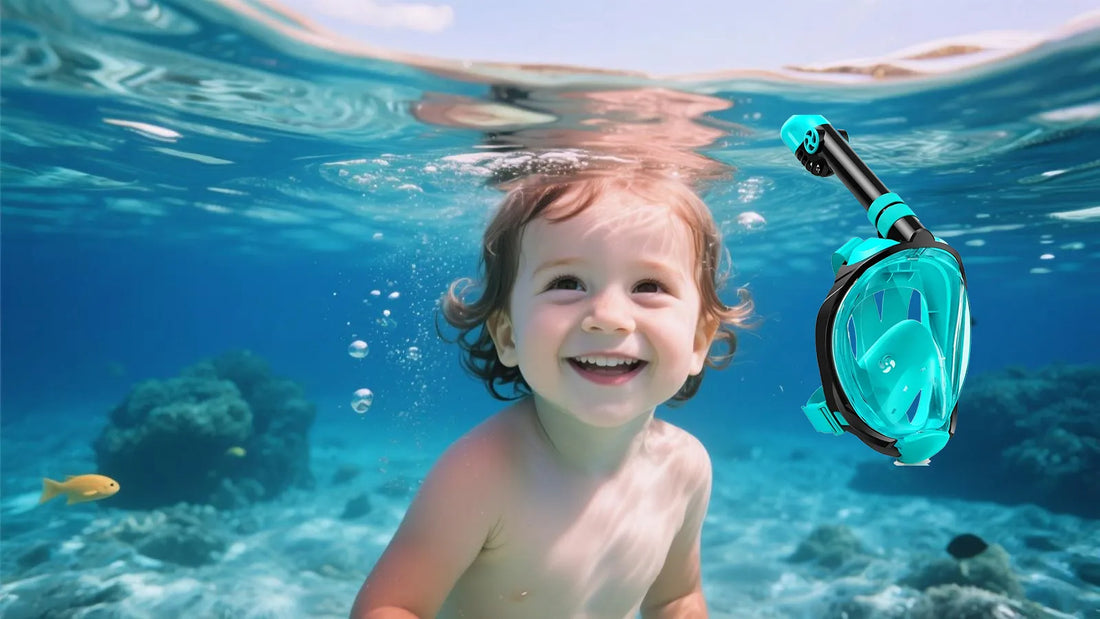Have you ever dreamed of exploring the vibrant, mysterious world beneath the ocean's surface? Snorkeling and scuba diving are two incredible ways to immerse yourself in underwater adventures. Whether you're a beginner or an experienced enthusiast, these activities offer unique experiences that connect you with marine life and the beauty of the sea. Let's dive into what snorkeling and scuba diving are, how they differ, and why they captivate so many people around the world.
What Is Snorkeling?
Snorkeling is a water activity that allows you to observe underwater life while staying close to the surface. It involves using a snorkel, a mask, and often fins to swim and breathe comfortably while floating face-down in the water. The snorkel is a tube that extends above the water, enabling you to breathe without lifting your head. This simple yet effective setup makes snorkeling accessible to people of all ages and skill levels.
One of the greatest advantages of snorkeling is its simplicity. You don't need extensive training or expensive equipment to get started. It's a fantastic way to explore coral reefs, observe colorful fish, and enjoy the tranquility of the ocean. Snorkeling is also a low-impact activity, making it ideal for families, beginners, and those who prefer a more relaxed underwater experience.
What Is Scuba Diving?
Scuba diving, on the other hand, takes underwater exploration to a whole new level. The term "scuba" stands for Self-Contained Underwater Breathing Apparatus, which refers to the equipment that allows divers to breathe underwater. Unlike snorkeling, scuba diving enables you to descend to greater depths and stay submerged for extended periods. This opens up opportunities to explore shipwrecks, deep-sea caves, and a wider variety of marine life.
Scuba diving requires more training and preparation than snorkeling. Divers must complete a certification course to learn essential skills, such as managing buoyancy, using dive equipment, and understanding safety protocols. While it demands more effort, scuba diving rewards adventurers with unparalleled experiences and the chance to witness the ocean's hidden wonders up close.
Key Differences Between Snorkeling and Scuba Diving
While both activities involve exploring underwater environments, they differ significantly in terms of depth, equipment, and skill requirements. Snorkeling is limited to the surface and shallow waters, whereas scuba diving allows you to venture much deeper. Snorkeling requires minimal gear, while scuba diving involves a full set of equipment, including a tank, regulator, and buoyancy control device.
Another key difference is the level of training needed. Snorkeling can be enjoyed with little to no instruction, while scuba diving requires formal certification. Additionally, snorkeling is generally more affordable and accessible, making it a popular choice for casual explorers. Scuba diving, with its greater complexity and cost, appeals to those seeking more immersive and adventurous experiences.
Benefits of Snorkeling and Scuba Diving
Both snorkeling and scuba diving offer numerous physical and mental benefits. They provide excellent cardiovascular exercise, improve strength and flexibility, and enhance lung capacity. Being in the water also has a calming effect, reducing stress and promoting relaxation. Beyond the physical benefits, these activities foster a deeper appreciation for marine ecosystems and encourage environmental awareness.
Snorkeling and scuba diving also create opportunities for social interaction and shared experiences. Whether you're exploring with friends, family, or fellow enthusiasts, these activities strengthen bonds and create lasting memories. They also inspire a sense of wonder and curiosity, reminding us of the vast and diverse world beneath the waves.
Safety Tips for Snorkeling and Scuba Diving
While snorkeling and scuba diving are generally safe, it's essential to follow safety guidelines to ensure a positive experience. For snorkeling, always check weather conditions, avoid strong currents, and stay within your comfort zone. Use proper-fitting equipment and be mindful of marine life to avoid accidental contact or injury.
For scuba diving, never dive alone and always follow the buddy system. Ensure your equipment is in good condition and perform pre-dive checks. Stay within the limits of your training and experience, and always monitor your air supply and depth. By prioritizing safety, you can enjoy these activities with confidence and peace of mind.
Choosing Between Snorkeling and Scuba Diving
Deciding between snorkeling and scuba diving depends on your interests, skill level, and goals. If you're looking for a simple, accessible way to enjoy the ocean, snorkeling is an excellent choice. It's perfect for casual outings, family trips, and those who prefer staying close to the surface. On the other hand, if you're eager to explore deeper waters and embrace a more adventurous experience, scuba diving is the way to go.
Ultimately, both activities offer unique ways to connect with the underwater world. Many enthusiasts enjoy both snorkeling and scuba diving, appreciating the distinct experiences each provides. Whichever you choose, you're sure to create unforgettable memories and develop a deeper love for the ocean.
Ready to take the plunge? Whether you're snorkeling in crystal-clear waters or scuba diving into the depths, the ocean awaits with endless wonders to discover. Embrace the adventure, and let the underwater world captivate your heart and soul.

